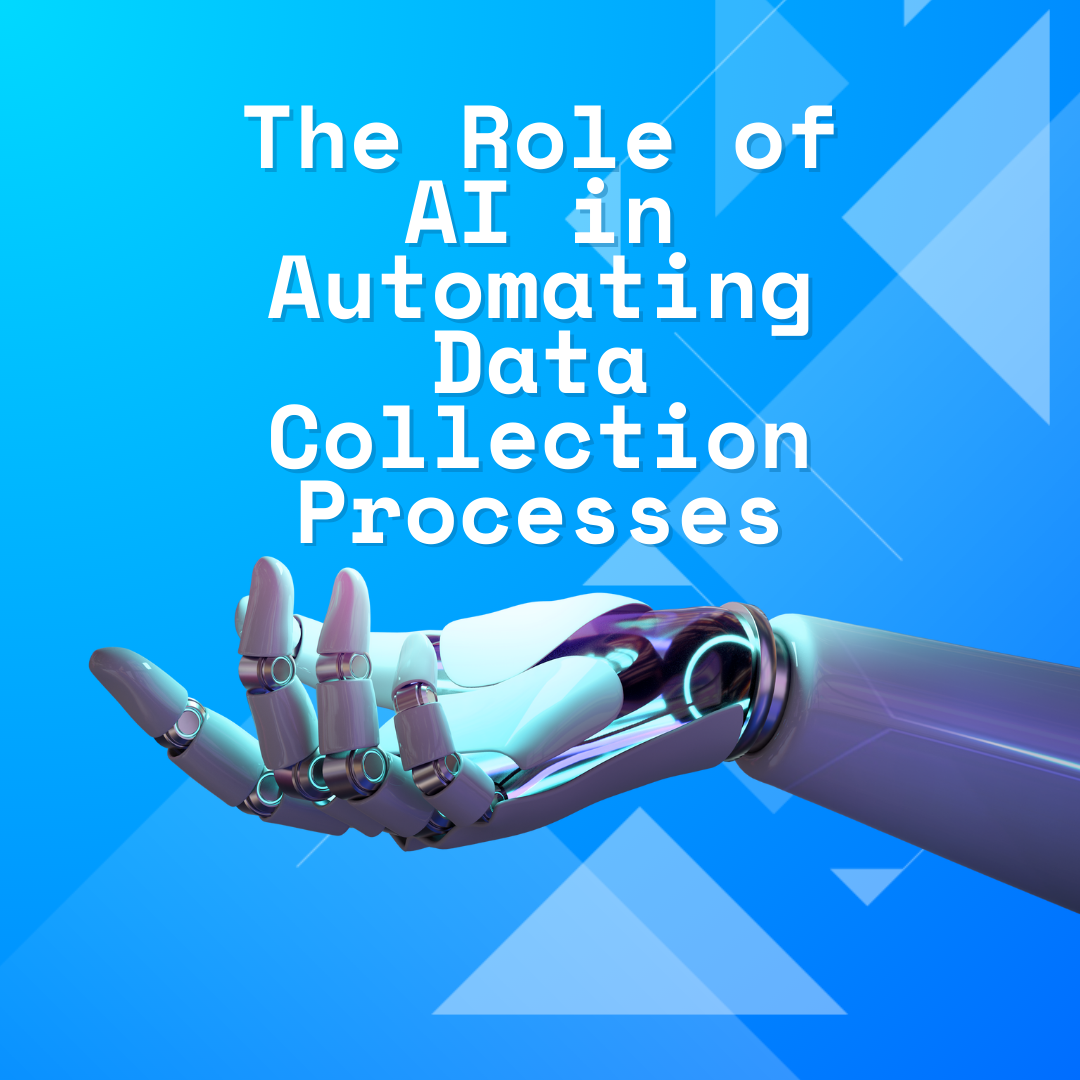In today’s data-driven world, businesses thrive on the wealth of information they collect, analyze, and utilize to drive decision-making, optimize operations, and enhance customer experiences. However, the traditional methods of data collection are often time-consuming, labor-intensive, and prone to human error. Enter Artificial Intelligence (AI), a transformative technology that automates and streamlines data collection processes, offering significant advantages to businesses. This article delves into the pivotal role AI plays in automating data collection, its benefits, applications, and the future landscape.
1. Introduction to AI and Data Collection
Artificial Intelligence (AI) is transforming how businesses collect and analyze data. AI encompasses a range of technologies, including machine learning, natural language processing (NLP), and computer vision, all designed to simulate human intelligence. AI technologies such as machine learning, natural language processing, and computer vision enable businesses to extract data from diverse sources, streamline operations, and make informed decisions. Companies like GTS (Globose Technology Solutions) specialize in providing cutting-edge AI-driven data collection services, helping businesses leverage the power of AI to stay competitive and innovative in today’s data-driven landscape.
2. Benefits of AI-Driven Data Collection
- Enhanced Efficiency: AI automates repetitive and mundane tasks, allowing human resources to focus on more strategic activities. This leads to faster data collection and processing, reducing time lags and operational bottlenecks.
- Improved Accuracy: Human errors in data entry and processing can lead to inaccurate datasets. AI systems minimize these errors, ensuring higher data quality and reliability.
- Scalability: AI-powered data collection systems can easily scale to handle large volumes of data from diverse sources, accommodating the growing data needs of businesses.
- Cost Reduction: By automating data collection, businesses can significantly reduce labor costs associated with manual data entry and processing.
3. Applications of AI in Data Collection
- Web Scraping and Data Mining: AI algorithms can automatically extract relevant information from websites and large datasets, providing businesses with valuable insights and competitive intelligence.
- Customer Interaction Analysis: AI tools can analyze customer interactions across various channels, such as emails, chatbots, and social media, to collect data on customer preferences, behavior, and feedback.
- Sensor Data Collection: In industries like manufacturing and logistics, AI can gather and analyze data from IoT sensors in real time, monitoring equipment performance, tracking inventory, and ensuring quality control.
- Survey and Feedback Analysis: AI can automate the collection and analysis of survey responses and customer feedback, identifying trends and sentiments without manual intervention.
4. AI Techniques for Data Collection
- Natural Language Processing (NLP): NLP enables AI to understand and process human language, making it possible to collect and analyze textual data from documents, social media posts, and customer reviews.
- Computer Vision: This technology allows AI to interpret and extract data from visual inputs like images and videos. Applications include facial recognition for customer identification and quality inspection in manufacturing.
- Machine Learning: ML algorithms learn from historical data to improve their performance over time. In data collection, ML can be used to identify patterns, predict outcomes, and automate decision-making processes.
5. Case Studies of AI in Data Collection
- Retail Industry: A major retail chain implemented an AI-driven data collection system to gather and analyze customer purchase data. This enabled personalized marketing strategies, optimized inventory management, and a 25% increase in sales.
- Healthcare Sector: A healthcare provider used AI to automate patient data collection from various sources, including electronic health records (EHRs) and wearable devices. This improved patient monitoring, predictive diagnostics, and treatment outcomes.
- Finance: Financial institutions leverage AI to collect and analyze transaction data, detect fraudulent activities, and comply with regulatory requirements more efficiently.
6. Challenges and Considerations
- Data Privacy and Security: Automated data collection raises concerns about data privacy and security. Businesses must ensure compliance with regulations such as GDPR and implement robust security measures to protect sensitive information.
- Quality of AI Models: The effectiveness of AI in data collection depends on the quality of the underlying models. Continuous monitoring, testing, and updating of AI algorithms are essential to maintain their accuracy and relevance.
- Integration with Existing Systems: Integrating AI-driven data collection tools with legacy systems can be challenging. Businesses need to ensure seamless integration to leverage the full benefits of AI automation.
7. The Future of AI in Data Collection
The future of AI in data collection is promising, with advancements in technology poised to further enhance its capabilities. Emerging trends include:
- Edge AI: AI processing at the edge, closer to the data source, will reduce latency and enable real-time data collection and analysis, particularly beneficial for IoT applications.
- Explainable AI: As AI systems become more complex, the need for transparency and explainability grows. Explainable AI will help businesses understand how AI models make decisions, fostering trust and accountability.
- AI and Blockchain: Integrating AI with blockchain technology can enhance data security and integrity, providing a tamper-proof record of data collection and processing activities.
Conclusion
AI is revolutionizing data collection processes, offering businesses unprecedented efficiency, accuracy, and scalability. By automating data collection, AI not only reduces operational costs but also provides deeper insights and better decision-making capabilities. Companies are at the forefront of this transformation, providing innovative AI-driven data collection solutions that help businesses stay competitive in a rapidly evolving landscape. As AI technology continues to advance, its role in data collection will only become more integral, driving the future of business intelligence and innovation.
